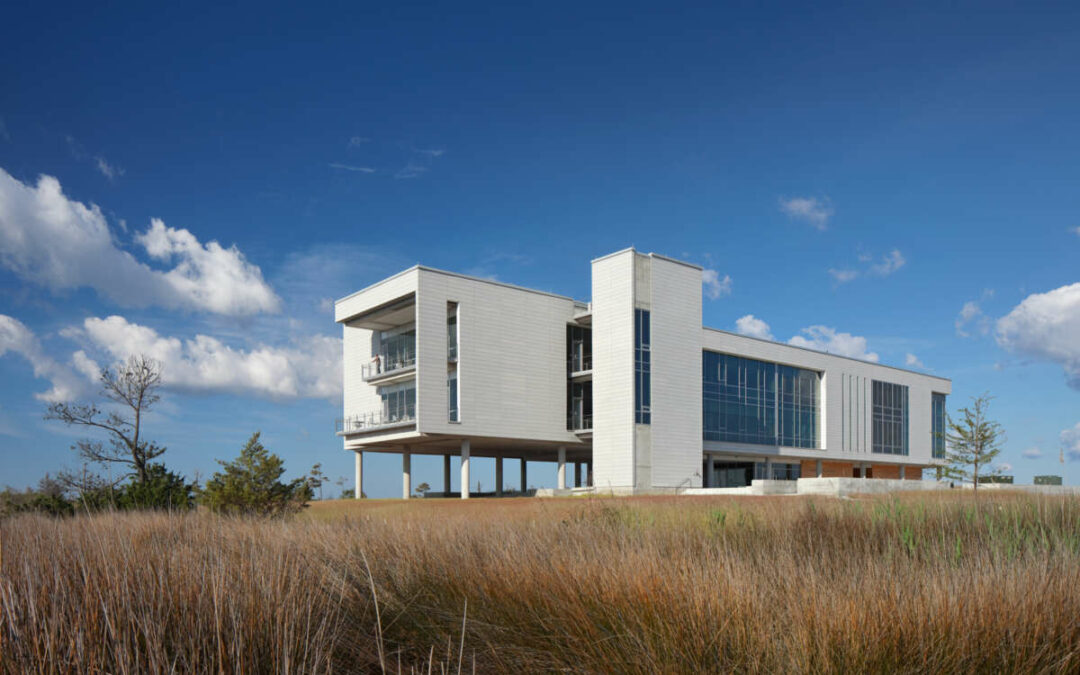What does it take to create a department at a university? Well, a “unit code” that defines rules, regulations, and guidelines for committees, annual review, tenure, etc., and FACULTY! Yep, it’s hard to have a department without the faculty. SO, we spent the better part of last year engaged in an in-depth hiring process to grow the number of faculty in the Department of Coastal Studies from four to eight. In addition, we worked with ECU’s Department of Biology to hire a new coastal ecologist and with NC State University’s (NCSU) Department of Civil, Construction and Environmental Engineering to hire the new director of the NC Renewable Ocean Energy Program (NCROEP). These six new faculty hires will be located at the Outer Banks Campus full time – increasing our research and curriculum capabilities at the coast. We will use this newsletter, and the next, to introduce these new faculty – providing information on their scientific expertise and goals, including a bit about the person behind that scientific persona.
The increase of faculty on the Outer Banks would not have been possible without strong support and commitment across campus – from the Provost’s vision of a strong coastal enterprise based on interdisciplinary science; to faculty chairing and serving on committees, participating in seminars, and meeting one-on-one with candidates; to the countless hours the administrative staff spent organizing schedules, completing endless reimbursement forms, and managing the challenging hiring process. From ad development to signatures on offer letters, it was a 10-month process and we thank everyone for their Herculean efforts. We have an incredible group of new Pirate faculty onboarding this Fall and next Spring.
Starting in August, 2019:
- George Bonner (left) – Director, North Carolina Renewable Ocean Energy Program (NCROEP). George will begin his duties on August 1, 2019. His position is a partnership with NCSU’s Department of Civil, Construction, & Environmental Engineering, funded by Academic Affairs and NCROEP. George has 30 years of experience as an Officer and Civil Engineer in the U.S. Coast Guard. During this time, George has worked with public and private stakeholders, many universities, and across all levels of government.
- David Lagomasino (top right) – (Department of Coastal Studies): Landscape Geomorphology, Ecohydrology, and Remote Sensing. Research combines geology, hydrology, and ecology to understand how the Earth’s landscape responds to changes caused by natural events and rapid urban expansion.
- Kimberly Rogers (bottom right) – (Department of Coastal Studies): Coupled Human-Natural Systems and Coastal Processes. Research integrates quantitative and qualitative approaches, such as field measurements of sedimentation, computational models, and ethnographic techniques, to explore complex feedback between fluvial and coastal processes, global change, and human decisions regarding land use and infrastructure that are shaping deltas and their coastal environments.


Starting in January, 2020:
- Nadine Heck (bottom left) – (Department of Coastal Studies): Human-Environment Geographer. Research has an applied, quantitative focus and explores marine conservation and natural resource management issues that lie at the interface of ecological, social, and institutional systems using a mix of social science and geospatial methods.
- Jim Morley (right) – (Department of Biology): Coastal Ecologist. Fisheries ecologist who examines how climate variability and long-term changes in the ocean affect marine populations. Research also investigates habitat use and transitions between life stages in marine species.
- Siddharth Narayan (top left) – (Department of Coastal Studies): Coastal Engineer. Research focuses on the interactions between coastal engineering, ecology and morphology with an emphasis on coastal flood risk analysis and management.



 Based at the Coastal Studies Institute (CSI), the North Carolina Renewable Ocean Energy Program (NCROEP) advances inter-disciplinary marine energy solutions across UNC System partner colleges of engineering at NC State University, UNC Charlotte, and NC A&T University. Click on the links below for more information.
Based at the Coastal Studies Institute (CSI), the North Carolina Renewable Ocean Energy Program (NCROEP) advances inter-disciplinary marine energy solutions across UNC System partner colleges of engineering at NC State University, UNC Charlotte, and NC A&T University. Click on the links below for more information. ECU's Integrated Coastal Programs (ECU ICP) is a leader in coastal and marine research, education, and engagement. ECU ICP includes the Coastal Studies Institute, ECU's Department of Coastal Studies, and ECU Diving and Water Safety.
ECU's Integrated Coastal Programs (ECU ICP) is a leader in coastal and marine research, education, and engagement. ECU ICP includes the Coastal Studies Institute, ECU's Department of Coastal Studies, and ECU Diving and Water Safety. The ECU Outer Banks campus is home to the Coastal Studies Institute.
The ECU Outer Banks campus is home to the Coastal Studies Institute.

